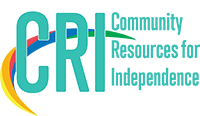The field of home healthcare is brimming with purpose. Personal care aides (PCAs) have the privilege of making a tangible difference in the lives of individuals, offering companionship, assistance with daily living tasks, and a helping hand where it’s needed most. Yet, it’s no secret that the profession comes with its share of challenges.
This blog aims to provide a candid look at some of the most common hurdles PCAs face, while also highlighting strategies to overcome them and showcasing the unwavering support offered by reputable home healthcare organizations. By understanding these realities, potential candidates can make informed decisions about their career paths, while established organizations can strengthen their commitment to employee well-being and retention.
Challenge #1: Emotional Intensity and Compassion Fatigue
Building genuine connections with clients is a core aspect of being a PCA. However, witnessing physical limitations, navigating complex family dynamics, and managing end-of-life situations can take an emotional toll. Compassion fatigue, a state of emotional and physical exhaustion stemming from prolonged exposure to others’ suffering, can set in.
Strategies:
- Strong support systems: Reputable organizations offer access to employee assistance programs (EAPs) with confidential counseling and resources. Regular team meetings and peer support groups can create safe spaces for PCAs to share experiences and receive encouragement.
- Self-care practices: Encouraging employees to prioritize their own well-being through healthy habits, stress management techniques, and mindful breaks is crucial.
- Client matching: Matching PCAs with clients based on personality, interests, and experience can foster positive connections while minimizing potential emotional strain.
Challenge #2: Physical Demands and Risk of Injury
Assisting clients with mobility, transfers, and personal care involves physical exertion, repetitive motions, and awkward postures. This can lead to musculoskeletal injuries, back pain, and fatigue.
Strategies:
- Safe patient handling training: Comprehensive training equips PCAs with proper lifting techniques, body mechanics, and the use of assistive devices to minimize strain and injury risk.
- Ergonomic assessments: Regularly evaluating workstations and recommending ergonomic modifications can significantly improve comfort and safety.
- Open communication: Encouraging PCAs to report any discomfort or concerns about lifting or assisting clients ensures prompt intervention and risk mitigation.
Challenge #3: Unpredictable Schedules and Long Hours
Home healthcare schedules can be demanding, often involving split shifts, evenings, weekends, and holidays. While flexibility is a perk for some, it can disrupt work-life balance and create challenges for childcare or personal commitments.
Strategies:
- Schedule transparency and flexibility: Providing clear communication about scheduling expectations and offering options for schedule adjustments whenever possible demonstrates respect for employees’ needs.
- Offering part-time and flexible options: Diverse scheduling options cater to varying preferences and life circumstances, attracting and retaining a wider talent pool.
- Paid time off (PTO) and competitive benefits: Ensuring adequate PTO allows PCAs to recharge and attend to personal needs, while competitive benefits contribute to overall well-being and job satisfaction.
Challenge #4: Limited Understanding and Social Stigma
Despite the crucial role they play, PCAs sometimes face a lack of public understanding and appreciation for their work. Societal stigmas associated with caregiving can contribute to feelings of isolation and undervalued contribution.
Strategies:
- Professional development and skills recognition: Investing in ongoing training and certifications empowers PCAs and demonstrates their expertise and professionalism.
- Community outreach and education: Raising awareness about the vital role of PCAs and the valuable services they provide fosters public understanding and appreciation.
- Positive work environment: Cultivating a supportive and collaborative work environment fosters belonging and reinforces the value of each PCA’s contribution.
Beyond Challenges: Rewards and Recognition
While challenges exist, it’s crucial to acknowledge the immense rewards inherent in home healthcare. PCAs witness firsthand the positive impact they make, building meaningful relationships with clients and families, experiencing gratitude, and knowing they are making a difference in someone’s life.
Organizations committed to supporting their PCAs go the extra mile by offering competitive wages, benefits packages, and recognition programs. They invest in ongoing training and development, fostering a sense of professionalism and career growth. Additionally, creating a collaborative and supportive work environment fosters belonging and appreciation.
By acknowledging the challenges and actively implementing strategies to address them, home healthcare organizations can attract and retain dedicated PCAs. This, in turn, ensures the delivery of high-quality care, client satisfaction, and a rewarding work experience for those who choose this meaningful career path.

